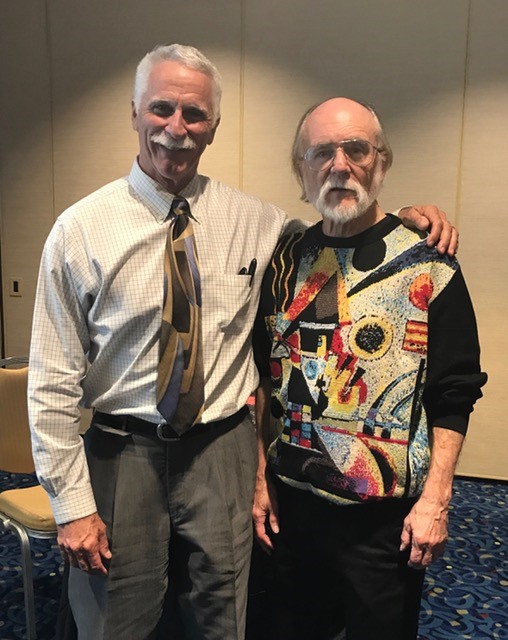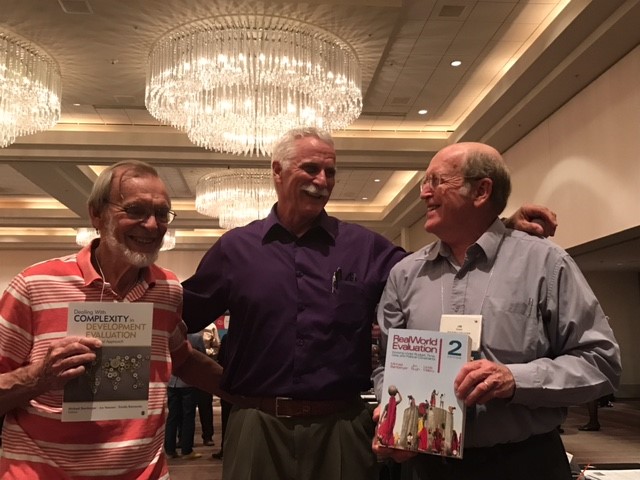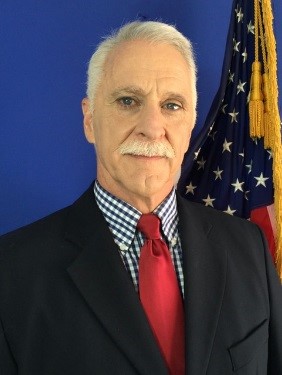During the last week in October 2016, professionals from around the world who conduct, use, support, and study evaluation came together in Atlanta to attend the American Evaluation Association’s (AEA) annual conference. As a global community, attendees explored how monitoring, evaluation, and information designs can be used to strengthen programming and improve the lives of people they impact.
Before starting my classes in American University’s Measurement and Evaluation program, I had already decided that after 20 years in the military and 20 years as a State Department Public Security and Rule of Law Program Manager, Monitoring and Evaluation (M&E) was going to be my next career. First, I Googled all of the associations and LinkedIn groups I could find. While there were some good associations in Europe, Oceania, and Canada, none seemed as established and organized as the AEA. Joining the AEA is a first step toward becoming a professional evaluator, and I highly recommend it. You can create a student profile which will give you a cheaper annual membership rate and it gives you free access to a host of publications, journals, papers, presentations, and coffee break webinars (some of which are hosted by AU faculty)! Membership also affords opportunities for networking with people with similar functional interests, which is important as you start your job search.
 I decided to attend the AEA Conference in 2016 as a learning and networking opportunity. As a first year student, I was interested in the workshop series and getting as much training and practical exercise as possible, as well as networking with other evaluators to exchange experiences. I had registered early to get the lower rate and the day the email arrived saying I could start scheduling workshops, I opened the website and began reviewing the plethora of events. Some classes you have to pay for and are given by premier speakers so you want to schedule early. In 2016, there was also a simultaneous pre-event called Impact Convergence, which focused on the advancement of the state and art of social impact measurement. This really sounded interesting however, I couldn’t pass up two full days, one-on-one, with Michael Quinn Patton!
I decided to attend the AEA Conference in 2016 as a learning and networking opportunity. As a first year student, I was interested in the workshop series and getting as much training and practical exercise as possible, as well as networking with other evaluators to exchange experiences. I had registered early to get the lower rate and the day the email arrived saying I could start scheduling workshops, I opened the website and began reviewing the plethora of events. Some classes you have to pay for and are given by premier speakers so you want to schedule early. In 2016, there was also a simultaneous pre-event called Impact Convergence, which focused on the advancement of the state and art of social impact measurement. This really sounded interesting however, I couldn’t pass up two full days, one-on-one, with Michael Quinn Patton!
AEA encourages many different types of presentations and while some presentation types require the presenter to be an expert in the field, others are designed for facilitators to promote discussions and idea exchange. This means you need to select events carefully and while some provide an incredible array of information, others may not be of your interest. Word of advice: If the presentation wasn’t what you thought it should be or isn’t interesting, leave and find another! There are about 15 to 20 presentations going on at any one time so it can be mind boggling; you can bet that there will be at least two you want to attend at any given time.
One of the best parts of the conference is meeting and talking one-on-one with the authors of your textbooks that you use in the Measurement and Evaluation program. All the greats will be there and meeting, listening, and talking with them is well worth the price of the conference alone. Make sure to create a list of your most pressing questions because, when you are face to face with Patton, Scriven, Bamberger, Rugh, Barrington, or Davidson, your mind tends to go blank!
I suppose the most engaging and sought after speaker was Michael Quinn Patton. The countless gems of information Professor Patton gives during his presentations and later in the question and answer session were invaluable. I attended the first two complete days listening to him speak and answer questions on Developmental Evaluation: Eight Principles in Practice and Qualitative Sampling & Case Selection. I also attended more sessions in which he and his daughter, who is also an evaluator, talked on the impact of the Pedagogy of Evaluation: Using Paulo Freire's Principles to Design Collaborative, Participatory & Empowerment Evaluation; and a focus group which he personally led on evaluation design failures. He was truly amazing to meet and talk with and seemed to have no limit on the time he had available to stop and talk on any and all subjects including the professional development of a new evaluator.
On the evening of the third day there was a Meet the Authors gathering which we could meet and talk with all the authors of our various textbooks. I enjoyed a lengthy discussion with Gail Barrington on the development of new independent evaluators, in which she gave some no holds barred advice on how to break into a career as an independent evaluator. I also met with E. Jane Davidson and Patricia Rogers, and tried to convince them to reinitiate their podcast series.
The 2017 AEA conference theme will be From Learning to Action. Those attending the conference in Washington, D.C. will explore ways that community can learn from evaluation to create better practices and outcomes. I already have the dates marked on my calendar and I am programming my schedule to be there. I hope to see more of my fellow students and instructors there this year and I know it will be as exciting as it was this past year. Save the date and see you there!
About the Author
 Mick Hogan is a 20 year veteran of US Army Special Forces and has worked with or for the US Department State Bureau of International Narcotics and Law Enforcement (INL) as a program manager for almost as long. He came to American University's Measurement and Evaluations Master’s program looking for better ways to measure project outcomes over outputs. He has managed projects for the USG, during assignments to Bolivia, Colombia, Guatemala and Central America, Afghanistan, Mexico and the Special Operations Command South in Homestead Florida. He is currently moving to a new assignment to the US Embassy in Georgetown Guyana as the INL Director. He lives in Argentina and is married to his fabulous wife, Beatriz Coronel. He speaks Spanish fluently and is a certified Project Management Professional (PMP - CDPM II).
Mick Hogan is a 20 year veteran of US Army Special Forces and has worked with or for the US Department State Bureau of International Narcotics and Law Enforcement (INL) as a program manager for almost as long. He came to American University's Measurement and Evaluations Master’s program looking for better ways to measure project outcomes over outputs. He has managed projects for the USG, during assignments to Bolivia, Colombia, Guatemala and Central America, Afghanistan, Mexico and the Special Operations Command South in Homestead Florida. He is currently moving to a new assignment to the US Embassy in Georgetown Guyana as the INL Director. He lives in Argentina and is married to his fabulous wife, Beatriz Coronel. He speaks Spanish fluently and is a certified Project Management Professional (PMP - CDPM II).
To learn more about American University’s online MS in Measurement and Evaluation or Graduate Certificate in Project Monitoring & Evaluation, request more information or contact an admissions advisor at 855-725-7614.



